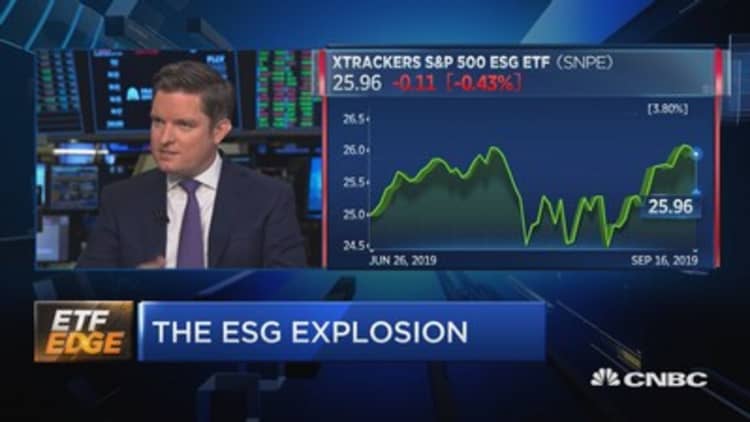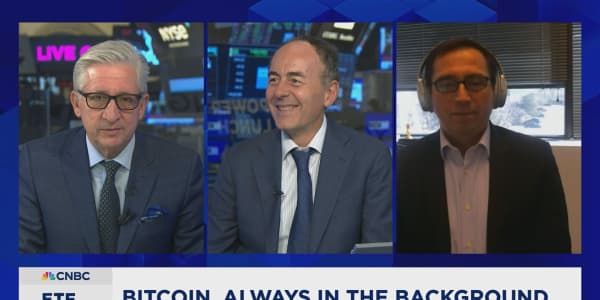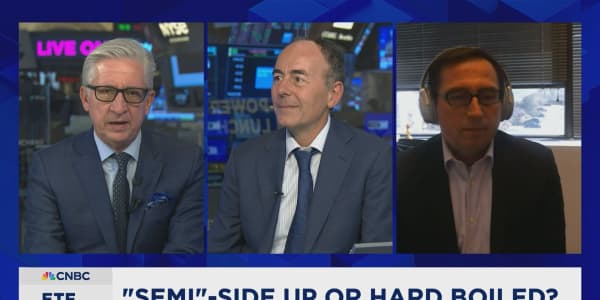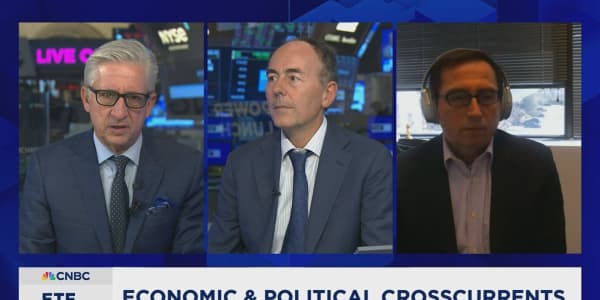
The ETF community has quickly come to embrace ESG as the hot new investing theme in the business. ESG generally refers to investing in companies that are meeting positive standards of corporate responsibility.
Broadly speaking, it's a three-pronged approach to sustainable investing:
Environmental – having a positive impact on the environment
Social – positive relations with employees, customers and stakeholders
Governance – better leadership practices, executive compensation plans and shareholder rights
While ESG assets have more than doubled in 2019, they're largely concentrated in funds run by industry heavyweights like iShares and Vanguard, who are using scale to offer low-cost products.
Top ESG ETFs by total AUM
- iShares ESG MSCI USA Leaders ETF (SUSL): $1.59 billion
- iShares MSCI KLD 400 Social ETF (DSI): $1.55 billion
- Xtrackers MSCI USA ESG Leaders Equity ETF (USSG): $1.49 billion
- iShares MSCI USA ESG Select ETF (SUSA): $1.17 billion
Source: ETF Trends
But despite the obvious appeal of owning ETFs that favor renewable energy, lower carbon emissions or better treatment of employees, ESG has proven to be a tough sell, especially in the United States.
There are currently 87 ESG products tracking roughly $16 billion in the U.S. — a mere fraction of the nation's $4 trillion total ETF assets and well below Europe's $124 billion ESG ETF business.
This leaves a large untapped market for ETF providers to fill. The uptake has been slow, because some investors fail to see a clear path to outperformance.
Tom Lydon, CEO of ETF Trends said Monday on CNBC's "ETF Edge" that there's a fear that ESG is "gimmicky" or simply a "feel-good investment that puts the investor on higher moral ground with little else to show."
Luke Oliver, head of index investing for the Americas at DWS Group, said on the same show that the key misconceptions about ESG are that investors will have to give up returns or make some kind of activist play by buying into these stocks.
His two ESG ETFs — the Xtrackers MSCI USA ESG Leaders Equity ETF (USSG) and the Xtrackers S&P 500 ESG ETF (SNPE) — aim to create diverse portfolios using best-in-class ESG picks from a broad swath of sectors. The two funds launched earlier this year and have so far raised $1.5 billion.
It may surprise some to see that top holdings in USSG include well known, high-quality, large-cap names like Microsoft, Alphabet and Johnson & Johnson.
Xtrackers MSCI USA ESG Leaders Equity ETF (USSG) Top Holdings
- Microsoft: 7.5%
- Alphabet: 5.5%
- Johnson & Johnson: 2.6%
- Visa: 2.3%
So far, the fund, which tracks MSCI USA, is trading roughly in-line with the S&P 500 this year, up about 11% since early March, compared to the S&P's 10% gain over the same time period.
"Our objective is to look like [these benchmarks], but to be aware of the E, S and G," Oliver said.
His other fund, SNPE, also roughly tracks the S&P 500 — up 5% since late June compared to the S&P's 3% gain.
The fund looks at all S&P 500 constituents but strips out companies involved in tobacco or controversial weapons, and that score poorly against key UN standards. The remaining companies are then selected based on an ESG score, while at the same time mirroring the sector weightings of the S&P 500.
ExxonMobil, for instance, is one of SNPE's larger holdings.
"You would think, 'Energy company, that's got to be bad for the environment.' But we pick the better ESG-scoring energy companies and [they] are some of the biggest spenders in renewable energy," Oliver said.
Todd Rosenbluth, head of ETFs and mutual fund research at CFRA, also noted that lower fees should start to draw in more interest in the space.
"People have historically thought [ESG] was a premium product," he said. "But now the costs have come down and they're more likely to come and take a look."
These days, investors can get exposure to ESG on a relatively low-cost basis — roughly 10 basis points for USSG and 11 basis points for SNPE. But according to ETF.com, the overall average expense ratio for sustainable ETFs is closer to 0.41%.
Still, Oliver said he's seeing a growing appetite for ESG.
"There's a transfer of wealth to the millennial generation, [which are expected] to invest through this type of socially aware responsibility," he said. "So, the fact that we're seeing something like $30 trillion is going to move from baby boomers to millennials over the next 20 years really means that companies are going to have to sit up and take notice."
Lydon said he has no doubt ESG will gain traction — it's just a matter of educating investors and spreading awareness.
"We have a generation growing up right now that is really adamant about sticking with this type of investing," he said. "I think we're just getting started."
Bottom line: ESG could well move the needle on corporate behavior, but longer-term performance and real returns will be key.




